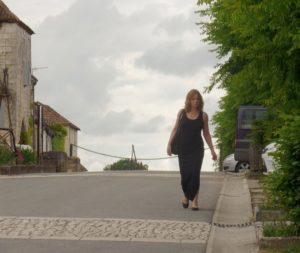CAC Member Spotlight: Meet Evardina
Evardina Mcateer is a member of the CAN-BIND Community Advisory Committee (CAC). Read below to learn a bit about Evardina’s story and why depression research is important to her.
Tell us a little about yourself.

I’m a 63 year old mother of two and grandmother of 9. This summer, I’ve been enjoying time with my grandchildren in cottage country, which I’m very grateful for. I struggled with severe depression and other diagnoses for a long time from a young age and into motherhood. As my depression worsened, I had multiple suicide attempts and a rocky medical journey with my psychiatrist at the time. Eventually, I was lucky to encounter a fantastic medical team at The Royal in Ottawa. They helped me detox from high doses of prescription medications that were previously inappropriately prescribed, and provided me with education and tools that led to my recovery. Ever since, I’ve felt a need to give back to the community that gave me so much. The experience led me to study Jurisprudence and Bioethics at Carlton University, and to join the Client Advisory Council at The Royal Mental Health Centre in Ottawa.
How did you learn about the CAN-BIND CAC? When did you join?
I don’t remember who first connected me with the opportunity, but it was fortuitous timing. I was nearing the end of my term on the Client Advisory Council at The Royal, and was looking for another way to give back to the community. The CAN-BIND CAC seemed like a great fit. I joined in early 2016.
How would you describe your experience being on the CAC so far?
I’ve found the experience to be very informative, and I’m always looking for different ways to be involved as a CAC member. I especially enjoyed writing up a piece on mobile health for the 2016 Depression Highlights booklet that summarized sessions from the CAN-BIND annual workshop that year.
What is something about depression that you want people to know?
I want people to know that depression is nothing to be ashamed of. For so long, I was full of shame, but you can’t solve something if you cover it up like that. You can’t grow a healthy plant if it’s under dirt and can’t reach sunlight.
Sometimes, you need to be willing, open and vulnerable and ask for help in order to reach the sunlight.
Sometimes, you need to be willing, open and vulnerable and ask for help in order to reach the sunlight. I’d encourage anyone with depression to get the help they need—to get out into the light.
Why is depression research important to you?
Depression research is important to me because for so long, I didn’t know that I could feel better than I did. If I wasn’t feeling suicidal, I felt like it was a good day and, if asked, I would probably have rated my day a 9 out of 10. What I didn’t know was that my idea of a 10 was far from the best I could feel. Not everyone can self-identify as having depression, and so research that will improve the diagnosis of depression and screening mechanisms for depression is so important. Also, medication can be helpful but it isn’t always the answer, or sometimes its only part of the answer. I think more research on and awareness of alternative therapies will help a lot of people.
What area of depression research are you most interested in?
I’m very interested in exercise, gratitude and cognitive behavioural therapy (CBT). CBT helped to stop my repetitive thoughts and was amazing for me.